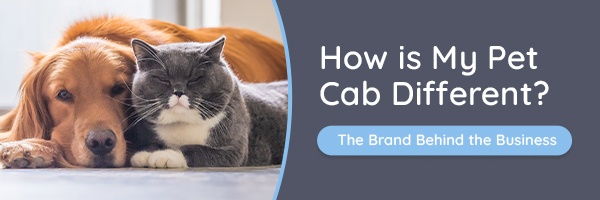Considering a new pet? You’re not alone! Studies show that nearly 70% of U.S. households own a pet—that’s about 85 million families! While dogs and cats are the most common companions, fish, reptiles, birds, horses, and small animals such as hamsters also make the list. So, if you’ve decided on a new pet, you may be wondering, “what kind of pet should I get?”. We’re here to help you answer that question!
6 Considerations for Choosing a PetBeing a pet owner is a big responsibility; after all, you’re accepting responsibility for another living being! So, you want to be sure you are able to properly care for your pet and provide them with a comfortable living environment for as long as they live. Depending on your situation, you may need to consider what is the easiest pet to take care of, what is the best pet for kids, or what is the friendliest pet. Here are six other considerations you need to think about when choosing a pet.
1. Your Finances
Every pet requires a financial commitment, but some will cost you more than others (for example, you won’t need to factor in veterinary expenses for your goldfish—but keeping that aquarium clean will cost you!). At the high end of the spectrum, let’s look at the expenses you need to take into consideration for most dogs and cats:
- Veterinary Care/Pet Insurance
- Spaying/Neutering
- Medications/Vaccinations
- Grooming/Dental Care
- Food/Treats
- Bedding/Toys
- Puppy Pads/Kitty Litter
- Licensing/Microchipping
The ASPCA has put together a handy pet care cost chart that you can view here.
2. Your Schedule
Your pet is going to some looking after—are you someone who travels frequently, or works long hours? If you’re expecting your children to do a lot of the pet-parenting, are they going to be too busy with school and extracurricular activities?
Some pets can go without a lot of attention, like a fish or some reptiles. Others, such as dogs or cats, will need daily attention for feeding, walking, bathroom breaks, etc. Of course, it’s possible to be a busy person and still have a needy pet, but it may cost you more if you frequently need to hire a petsitter or use pet daycare or overnight boarding services.
3. Your Lifestyle
Are you an active person, or do you prefer binging your favorite shows on Netflix all day? Some pets need to get out of the house from time-to-time, such as dogs (not just to use the bathroom, but to satisfy their need to roam).
If you’re someone who prefers staying indoors but still want the companionship of a dog, you should consider the breed. Some breeds are considered “easy pets to own.” There are a number of low-maintenance breeds, such as the dachshund and (believe it or not) the greyhound. Read more about these couch-potato pooches at The Spruce.
4. Potential Life Changes
No one can predict the future, but many of us have an idea of what the next 10-15 years will bring. Will you be having kids? Will you be moving frequently? Or do you suffer from health issues, which could become worse over time? These are all considerations to keep in mind when choosing the right type of pet.
5. Local Laws/Housing Ordinances
Does your city limit the number of pets you can have? How about which types of pets you can have? One Wisconsin town only allows pet owners to have two dogs. And even though you treat your pot-bellied pig as a member of the family, certain zoning restrictions consider them as livestock and will not allow them as pets. Of course, many apartment complexes and homeowners’ associations also limit pets based on weight or breed. Before bringing home a new pet, it’s always best to be sure there are no restrictions.
6. Your Current Pet Situation
Sometimes, having more than one pet is great, as it can give the animal a constant companion. This usually works well when they’re raised together, but introducing a new pet into the home has the potential for trouble. Some pets don’t always take kindly to having competition in the home, and others simply don’t mix. For example:
- Cats and birds. Cats typically don’t differentiate between a pet bird and a wild bird, and their natural instinct is to prey on them.
- Large birds and small birds. Small birds tend to be stressed out by large birds and may pick fights with them or self-mutilate themselves in protest, so it’s best to try to “stick to birds of the same feather.”
- Hamsters and more hamsters. Hamsters are very territorial, and introducing a new one to the cage could result in a fight and serious injury.
You can read more about animals that may not be compatible here.
What Pet Is Right for Me?
Hopefully, these considerations have helped you to answer the question, “what pet is right for me?” Choosing the right type of pet is a big decision, so be sure to do your research and consider not just your needs, but the needs of the pet you’ll be bringing home. Need help traveling with a pet over long distances? Reach out to My Pet Cab at (877) My-PetCab to get started.

